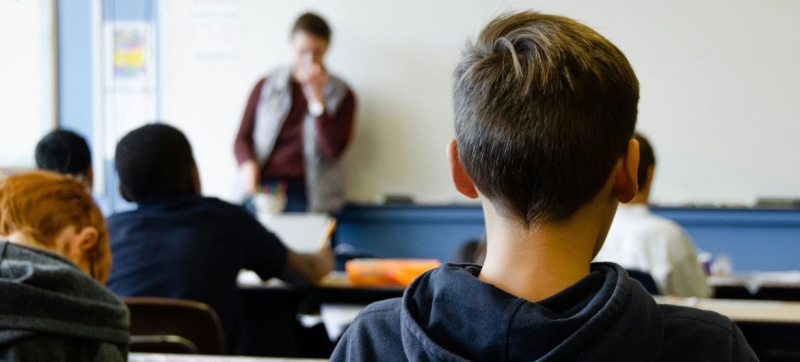
Teenagers are finding it increasingly difficult to cope with the pressures of school. Teenagers in Europe and Central Asia are facing increasing pressures of school Culture and Education
Teenagers, especially girls, are facing increasing pressure at school while receiving less support from their families, according to a new report from the World Health Organization (WHO) Regional Office for Europe.
According to the results of the study, conducted in Europe, Central Asia and Canada, only 68 percent of adolescents report high levels of support from their family, which is significantly lower than in the previous study conducted in 2018. At the same time, school workload, according to respondents, has increased sharply, which is particularly felt by teenage girls.
Almost two-thirds of 15-year-old girls (63 percent) report feeling overwhelmed by school work (up from 54 percent in 2018), compared with 43 percent of 15-year-old boys (40 percent in 2018).
“The increasing workload facing adolescents is a multifaceted problem. Girls are often expected to achieve academically and conform to traditional social roles at the same time, while boys may experience the added pressure of being strong and self-sufficient, which prevents them from seeking the support they need,” said one of the report’s authors, Irene Garcia-Moya.
“We must create supportive environments in our schools where every student feels seen, heard and supported,” she added.
The trends highlighted in the report are affecting the mental health and well-being of millions of adolescents, especially those in late adolescence and those from less advantaged backgrounds.
The report is based on data from a survey of nearly 280,000 adolescents aged 11-15 years in 44 countries and regions. According to its authors, in order to effectively solve these problems, it is necessary to take coordinated measures at all levels – national, regional and local.
Social Inequality
Teens from less affluent families report lower levels of support compared to their more affluent peers. For example, only 62 percent of teens from low-income families report high levels of family support compared to 71 percent of teens from high-income families.
Gender Differences
There are significant gender inequalities in many areas of teen life. Girls are less likely than boys to report that they find it easy to talk to both parents about things that really bother them, with larger gender differences in communication with fathers than with mothers.
Girls are also less likely to report having enough support from their family and immediate circle (65 percent versus 71 percent for boys). The exception is peer relationships, where girls support each other more than boys (62 percent versus 55 percent).
The Legacy of the COVID-19 Pandemic
The COVID-19 pandemic has had a profound impact on how adolescents interact with their social networks, with long-term consequences that continue to impact on their well-being.
Following social distancing measures, school closures and disruption to daily routines, adolescents have been more likely to report reduced support from family and peers and less positive about their school situation, which in turn has exacerbated those challenges.
The report highlights the need for continued work to support adolescents through the pandemic to ensure their social and emotional well-being.
How to help adolescents
“Today’s adolescents face unprecedented challenges in interacting with their social environments – from declining support at home to increasing pressure at school, which can have long-term consequences for their health and life prospects. These findings should galvanize us all to take urgent action to improve the conditions in which our young people are growing up,” said Hans Kluge, WHO Regional Director for Europe.
The Organization is calling on countries to take coordinated action to address this issue, including increasing economic support for families, creating inclusive school environments and reducing academic pressure.
